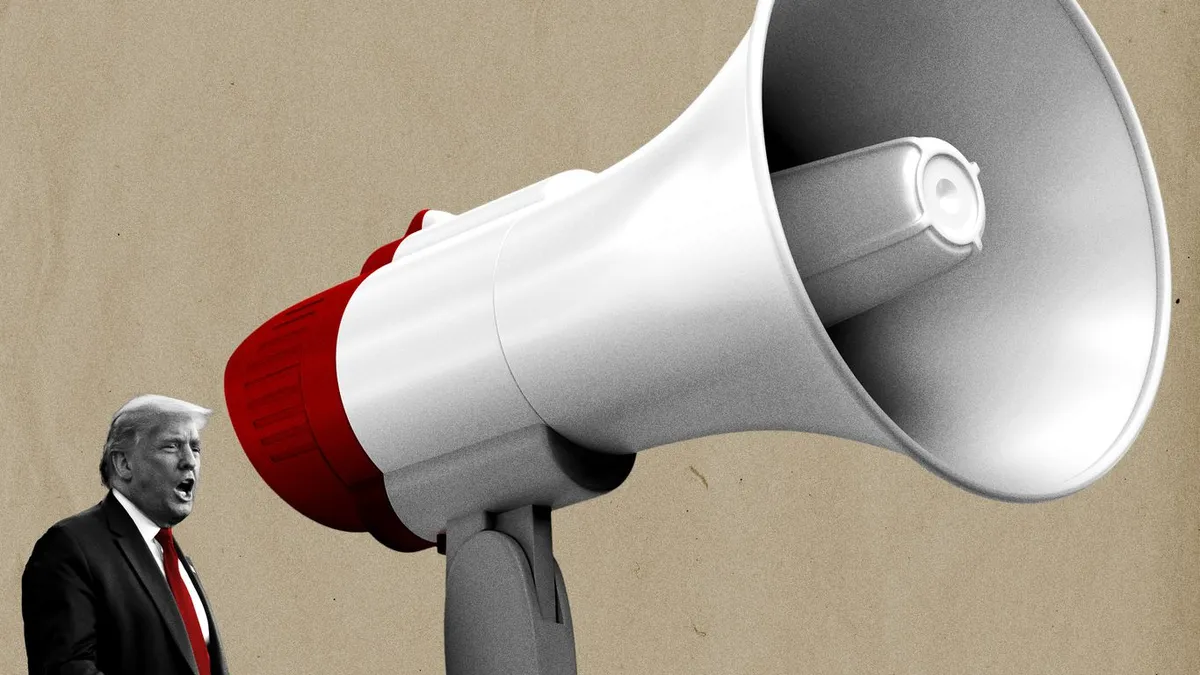
In a surprising turn of events, members of the MAGA movement are not only dismissing President Trump's recent series of AI-generated videos, but they are also starting to create their own content, all in the name of parody and harmless fun. This trend underscores a significant shift in how political satire is perceived and utilized within social media platforms.
The Trump administration has adopted a robust social media strategy that heavily features memes, AI-videos, and posts designed to provoke reactions from the left. As Republicans navigate this landscape, the distinction between satirical parody and what critics label as problematic misinformation continues to fade. This evolution raises important questions about the impact of such content on public perception and political discourse.
In response to an AI-generated video depicting Trump dumping brown sludge over No Kings protesters, House Speaker Mike Johnson (R-La.) defended the president's use of social media. "You can argue he's probably the most effective person who's ever used social media for that," Johnson stated during a news conference. He emphasized that Trump is leveraging satire to convey his messages without inciting violence against political opponents.
Recently, Trump shared the controversial video on his Truth Social account, which drew widespread condemnation from Democrats and even from musician Kenny Loggins. Loggins criticized the use of his song "Danger Zone" in the video, joining a growing list of artists who have voiced their disapproval of the Trump administration appropriating their work without consent. White House Director of Communications Steven Cheung added a humorous twist on social media, mocking the protesters with a laughing emoji.
As noted by Axios' Megan Morrone, the public's perception of deepfakes is rapidly evolving. What was once considered scandalous is now often brushed aside, as the Trump-era meme politics have blurred the lines between authenticity and fabrication. A recent example includes an AI-generated video from the National Republican Senatorial Committee, which featured Senate Minority Leader Chuck Schumer (D-N.Y.) making an optimistic statement about Democrats amidst a government shutdown. Although based on a real quote, the imagery was manipulated, raising ethical concerns about the use of AI in political advertising.
The Trump administration has fully embraced AI technology across its social media platforms. This includes posting fabricated videos with false quotes from political adversaries. Notably, Trump shared a video featuring Schumer stating that "nobody likes Democrats anymore," alongside a racially insensitive portrayal of House Minority Leader Hakeem Jeffries (D-N.Y.). Additionally, Senator Ted Cruz (R-Texas) contributed to this trend by posting an AI-generated video showcasing Senate Democrats who opposed the House's shutdown bill, all while donning sombreros to a parody of the Macarena.
The bottom line is clear: President Trump has shown a pronounced affinity for utilizing AI to advance his political agenda. As the technology becomes increasingly sophisticated, it is imperative for Americans to develop better skills in identifying deepfakes and discerning fact from fiction. This evolution in political communication will undoubtedly shape the landscape leading up to the 2026 midterms and beyond.